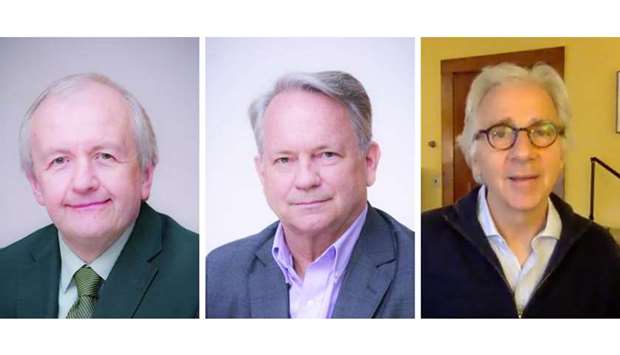As part of its Joint Training and Research Collaboration Programme with Harvard Stem Cell Institute (HSCI), Qatar Biomedical Research Institute (QBRI) at Hamad Bin Khalifa University (HBKU) recently organised a symposium on the use of cell therapies to treat diabetes.
Held online on October 28-29, the second annual Research Collaboration Symposium brought together scientists from both institutions to discuss their research activities.
These typically fall within the programme’s four research projects and reflect its commitment to training scientists in Qatar in the use of stem cells for diabetes research.
To this end, additional presentations were made by young scientists engaged in projects with the QBRI’s Diabetes Research Centre (DRC).
“Since founding the Joint Training and Research Collaboration Programme in 2018, excellent progress has been made across our projects,” said Dr Lawrence Stanton, scientific director of the QBRI’s Neurological Disorders Research Centre and chair of the QBRI’s Scientific Advisory Committee for this joint programme. “In this respect, the symposium was a chance for the broader scientific community at the QBRI and the HSCI to exchange ideas.”
DRC scientific director Dr Paul Thornalley noted: “This was a wonderful opportunity for young scientists at the QBRI to share their latest findings with experts in the field of diabetes.”
The Research Collaboration Symposium also featured two keynote talks presented by HSCI faculty.
In *Using Stem Cells to Make Islets for Diabetics, Dr Douglas Melton, co-director of Research at the HSCI, provided a talk on developing cell therapies for diabetics.
This was followed by *Lineage Tracing on Transcriptional Landscapes, in which Dr Allon Klein, associate professor at Harvard Medical School, delivered a talk on applying new single-cell technologies to understand developmental biology.
After his talk, Dr Melton affirmed the ongoing success of the initiative, saying: “The joint programme between the HSCI and the QBRI has made excellent progress over the first two years, and it is poised to make a significant impact on developing cell therapies for diabetics.”
QBRI executive director Dr Omar El Agnaf commented after the symposium: “Our ongoing collaboration with the HSCI is a central component of the QBRI’s diabetes research programme.
“The annual symposium is always an exciting event, as it fosters stronger ties between both organisations and stimulates scientific interchange among scientists with a shared interest to treat diabetes using stem cell-based approaches.”
These typically fall within the programme’s four research projects and reflect its commitment to training scientists in Qatar in the use of stem cells for diabetes research.
To this end, additional presentations were made by young scientists engaged in projects with the QBRI’s Diabetes Research Centre (DRC).
“Since founding the Joint Training and Research Collaboration Programme in 2018, excellent progress has been made across our projects,” said Dr Lawrence Stanton, scientific director of the QBRI’s Neurological Disorders Research Centre and chair of the QBRI’s Scientific Advisory Committee for this joint programme. “In this respect, the symposium was a chance for the broader scientific community at the QBRI and the HSCI to exchange ideas.”
DRC scientific director Dr Paul Thornalley noted: “This was a wonderful opportunity for young scientists at the QBRI to share their latest findings with experts in the field of diabetes.”
The Research Collaboration Symposium also featured two keynote talks presented by HSCI faculty.
In *Using Stem Cells to Make Islets for Diabetics, Dr Douglas Melton, co-director of Research at the HSCI, provided a talk on developing cell therapies for diabetics.
This was followed by *Lineage Tracing on Transcriptional Landscapes, in which Dr Allon Klein, associate professor at Harvard Medical School, delivered a talk on applying new single-cell technologies to understand developmental biology.
After his talk, Dr Melton affirmed the ongoing success of the initiative, saying: “The joint programme between the HSCI and the QBRI has made excellent progress over the first two years, and it is poised to make a significant impact on developing cell therapies for diabetics.”
QBRI executive director Dr Omar El Agnaf commented after the symposium: “Our ongoing collaboration with the HSCI is a central component of the QBRI’s diabetes research programme.
“The annual symposium is always an exciting event, as it fosters stronger ties between both organisations and stimulates scientific interchange among scientists with a shared interest to treat diabetes using stem cell-based approaches.”

